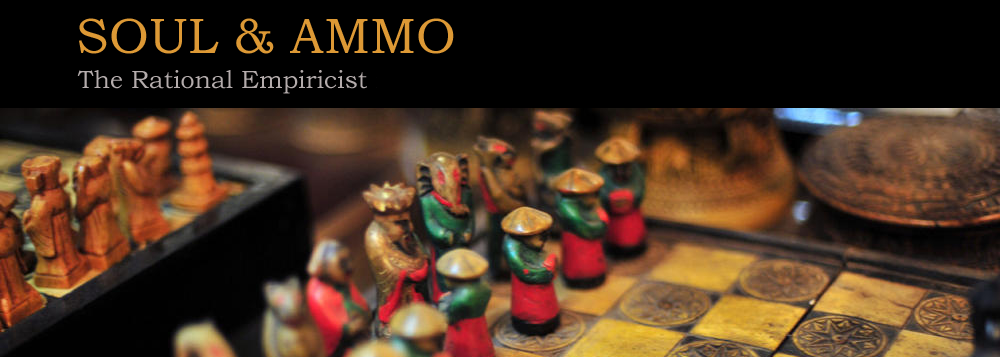
Courtesy of www.parentherald.com
One of the hallmarks of American society since World War II has been the emergence of the consumer society, marked by explosions in the availability of both utilitarian and recreational goods to Everyman and Everywoman, and the ever-increasing ability of everyday people to acquire them. It was a triumph of free-market capitalism for all classes that metastasized in very short order, extending throughout the Western world and then beyond even to cultures scarcely vital economically. Who can forget images of Arab terrorists sporting Nikes as they warred in the streets of Beirut or Baghdad, and using modern cellphones to detonate car bombs? Or Asian dictators driving Mercedes Benz sports cars while sporting Rolex watches? Or Russian oligarchs luxuriating aboard mega-length yachts complete with helipads? Consumers’ prosperity, for all or a few, is epitomized by the possession of things: Cars, watches, audio and video equipment, sporting goods, musical instruments, recreational vehicles of all types, boats, and even airplanes and helicopters. Not to mention two or more homes. As people get more money for their personal labor, creativity, or entrepreneurial acumen (or from investments), their inventory of possessions grows apace but, given the “miracles” of consumer credit and other modes of deferred payment, often exceeds their ability to pay timely — if at all — for all they acquire or have acquired. In time, viewing our modern society from high above, a sincere, disinterested observer might well ask: Does any given person own his or her possessions, or do they, in reality, own him or her?
It’s more than an ethereal philosophical question. In one vein, the matter has to do with how a person chooses to spend time in their finite lives; “finite” because all of us are indubitably temporary sojourners on this planet; indeed, the vast majority of people live many fewer than 100 years. So, apart from the act of purchasing or inheriting possessions, they draw on any owner’s time, apart from their enjoyment: They must be acquired by purchase, contract, or the process of ordering, and they then need servicing/maintenance, repairs, and upgrades or customizing or modernizing, not to mention storage and, often, work at preservation against deterioration and devaluation over time. There can, of course, be great joy and satisfaction in all of these activities, even if such fulfillments seem exceedingly mundane and ephemeral. Still, people down through the ages have marveled and continue to marvel at possessions of the famous or unknown owners of yesteryear, whether the royal artifacts of King Tut’s tomb, the brace of flintlock pistols gifted to George Washington by General Lafayette, the first Polaroid camera, or, I suppose, even the first Commodore personal computer. Admittedly, any red-blooded American man may well covet the first Corvette Stingray off the assembly line, the first Browning A5 shotgun ever made, or even the first commercially available cabinet color television set. Certain possessions understandably do evoke a deserved admiration for, variously, their aesthetics, functionality, innovation, craftsmanship, and intricacy. They are all, after all, testament to humans’ inspiration and inventiveness, and our specie’s intrinsic drive towards ever-greater efficiency and effectiveness, ease and comfort, beauty and style, and unique creativity. So, with that all said, what’s the bother then?
The bother may be with “focus in life”, if living life really has some deeper meaning. If a whole people becomes overly preoccupied with its possessions and all the necessary attentions attendant on owning and possessing them, what gets sidelined, neglected, deflected, or even willfully ignored as a result? The answer may well be severalfold: interpersonal relationships, one’s relationship with one’s self (to include spirituality, mental/emotional health, and personal soul evolution), and beneficial service activity to others, be they family, friends, or organic personal or national communities.
This writer is a political conservative with a strong libertarian streak, yet firmly anchored in the Judaeo-Christian values paradigm, if not its informing theology. What that means is, I espouse the right of every free man and woman to spend their time and lawfully gained wealth as they wish, unfettered by any capricious “shoulds” dictated by the fiat of state or church. One Essential Liberty’s key quoins is every individual’s ability to exercise their G-d-given free will to acquire what they want, within broad yet still cognizable moral and legal constraints. So, yes to gaining expensive cars and other fossil-fuel-powered vehicles, consumer electronics, firearms, boats, and airplanes (and gaudy, flashy clothes, footwear, and jewelry), but no to highly addictive and death-dealing drugs, child pornography, and high-yield explosives. Manifestly self-evident risks to one’s personal health and well-being, children’s and teens’ mental and physical safety, and the general public’s overall security provide common-sense guardrails to the generalized liberty of open acquisition. All individual freedom, after all, if it is morally comprehended, requires commensurate personal responsibility. It does not – and cannot, if it is to be sustained personally and societally — encompass licentiousness. Any unrestrained license leads inexorably to total ruination, as a matter of the historical record of experience.
More neatly put, the relentless acquisition, accumulation, storage, and ongoing maintenance of things for things’ sake must eventually distract people from their souls. By which is meant their ability, opportunity, and ultimately purpose to actuate their divinely conceived blueprint, embodying the deeper purposes that inhere in living a human life on this planet. Of course, what that looks like for any given one of us is a matter of individual path, best discernable by each person. But, if one views each human life as a vehicle for the ongoing evolution of clarity and consciousness, are way too many of us, especially in our First World societies, wasting too much of our valuable time on what is meretricious and inevitably alienable?
All the stuff that is more transcendental, however defined via thoughtful deliberation, ought to matter — indeed, be eminently honored by us — a lot more. Virtu, anyone?
